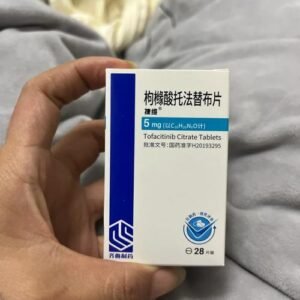Rufinamide Banzel 、Rufinamid、Inovelon Eisai 卢非酰胺薄膜片
Rufinamide is an antiepileptic drug primarily used as an adjunctive treatment for seizures associated with Lennox-Gastaut syndrome and focal seizures in patients 4 years of age and older. Its mechanism of action is to modulate sodium channel activity, reducing abnormal neuronal discharges and thereby controlling seizure frequency.
I. Main Actions and Indications
Seizure Control: Reduces the frequency and severity of epileptic seizures by inhibiting neuronal hyperexcitability.
Lennox-Gastaut Syndrome: Used as part of combination therapy for refractory epilepsy syndromes in children and adults.
Focal Epilepsy: Used as an adjunctive treatment for focal seizures (with or without secondary generalized seizures) that are inadequately responsive to other antiepileptic drugs.
II. Pharmacological Mechanism
Sodium Channel Modulation: Selectively prolongs the inactivation time of sodium channels, reducing the propagation of abnormal high-frequency discharges.
Synergistic Effects: Combination with other antiepileptic drugs may enhance efficacy, but the risk of drug interactions should be noted.
III. Precautions
Dose Adjustment: The initial dose should be individually adjusted based on weight and age, with gradual increases to minimize side effects. Common side effects: Dizziness, drowsiness, headache, and nausea, which usually subside with treatment adaptation.
Serious risk warning: May cause allergic reactions (such as rash and difficulty breathing) or cardiac arrhythmias. Immediately discontinue the drug and seek medical attention.
IV. Medication Instructions
Use as directed by your doctor: Rufinamide is a prescription drug. Strictly follow your doctor’s instructions. Do not adjust the dose or discontinue the drug on your own.
Special populations: Use with caution in patients with hepatic or renal impairment, pregnant women, and breastfeeding women. A thorough assessment of the risks and benefits is essential.
Regular monitoring: Regularly review EEG, liver and kidney function, and blood drug levels during treatment to ensure safety and efficacy.
If a seizure worsens or an unusual reaction occurs, contact your doctor promptly to adjust your treatment plan.
See more
Share:
Products
Our offers
Health Classification
Let us work together to protect precious health




























